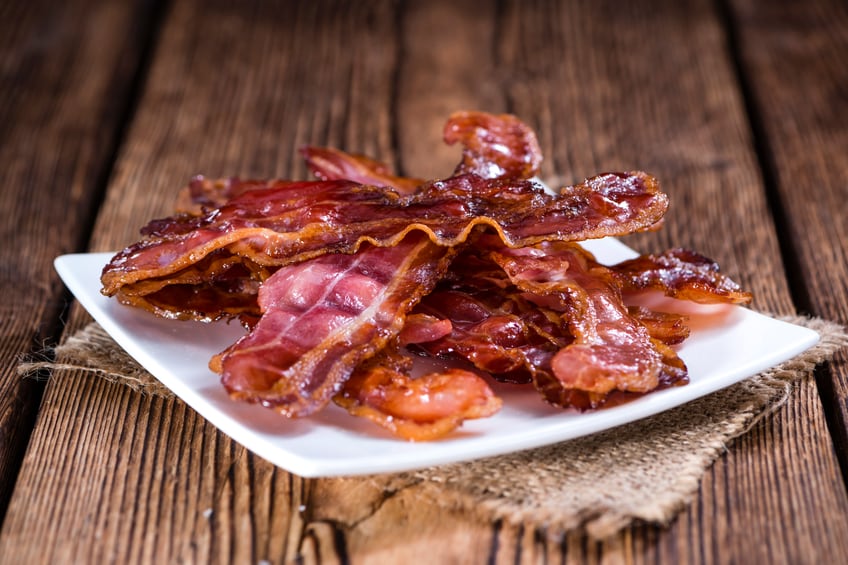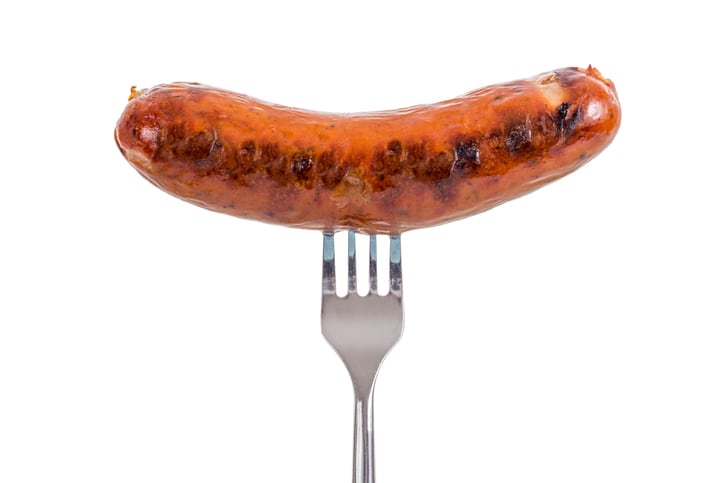Leading the call are Queen’s University Belfast’s Professor Chris Elliott, who headed-up the government’s horsemeat inquiry, and NHS consultant cardiologist Dr Aseem Malhotra.
In a joint statement also signed by a cross-party group of MPs, the coalition urged the government to take action to combat what they described as the elevated cancer risk posed by the consumption of processed meats.
“There is a consensus of scientific opinion that nitrites in processed meats result in the production of carcinogenic nitrosamines – and therefore increase cancer risk for those who regularly consume traditional bacon and ham,” the statement read.
Public awareness should also be raised in a similar way to campaigns highlighting the health dangers of high sugar and fat consumption, it added. “We are concerned that not enough is being done to raise awareness of nitrites in our processed meat and their health risks, in stark contrast to warnings regularly issued regarding sugar and fatty foods.”
Others supporting the statement included Dr Chris Gill, Biomedical Sciences Research Institute, University of Ulster; MP Tom Watson, the Deputy Leader of the Labour Party in England; MP Sir David Amess, Conservative Chair of the UK All-Party Parliamentary Group on Food and Health; and MP Kerry McCarthy, Former Labour Shadow Secretary of State for Environment, Food and Rural Affairs.
MP Mary Creagh, Chair of the Environment Audit Committee, Former Shadow Environment Secretary (Labour); Baroness Walmsley, Vice Chair, UK All-Party Parliamentary Group on Cancer (Liberal Democrat); MEP John Procter Environment, Public Health & Food Safety committee European Parliament (Conservative); and Wendy McCulla, Chair of the Cancer Fund for Children also backed the initiative.
Opinion divided over ‘safe’ levels
Sodium and potassium salts of nitrite and nitrate (E 249-252) are used by food manufacturers as preservatives and colour-fixing agents in meat products, and to prevent bacterial infections such as Clostridium botulinum.
When nitrates are consumed, they produce nitrosamines, which are known carcinogens believed to be linked to the development of bowel cancer.
In 2015 the World Health Organization published data linking processed meat consumption to 34,000 cases of colorectal cancer worldwide each year. The WHO suggested that nitrites and nitrosamines are a likely cause.
The UK coalition said that a “united and active front” should be formed by policy makers, the food industry and the cancer care community should “raise awareness of their risks” and “encourage the much wider use of nitrite-free alternatives that are safer and can reduce the number of cancer cases in the UK.”
However, in a recent re-evaluation of the safety of nitrates in food, the European Food Safety Authority (EFSA) concluded that consumption at authorised levels does not pose a significant threat to health.
“Applying a number of conservative (i.e. worst-case scenario) assumptions, the panel concluded that the formation of nitrosamines in the body from nitrites added at approved levels to meat products was of low concern for human health,” the EFSA stated.
Speaking last year, European health and food safety commissioner Vytenis Andriukaitis said the EFSA scientific opinions provided sufficient information on the safety of the additives, and did “not justify a general ban of the use of these substances as food additives”.
However, under political pressure from Member States, Andriukaitis said that the commission would mull lowering permitted levels. “After discussions with the member states, the Commission is considering revising the current food additive authorisations for E 249-252 to lower the uses and use levels to the extent possible, in the light of the EFSA opinions, as well as the 2016 study [by the Commission which stated that pork products can be produced without nitrates]. This would likely contribute to a decrease in the overall exposure.”
A spokesperson for the British Meat Processors Association (BMPA) stressed the role nitrates play in maintaining food safety standards and controlling food waste.
“Sodium and potassium salts of nitrite and nitrate (E 249-252) are authorised as food additives in the EU. They are used in meat, fish and cheese products to hinder microbial growth, in particular to protect against botulism, as well as to keep meat red and enhance its flavour. Nitrate is also found naturally in high concentrations in certain vegetables, and it can enter the food chain as an environmental contaminant – mainly in water.
“The industry is constantly looking at the levels of nitrites and nitrates and some processors are working on new techniques but reductions have to be balanced against the food safety issues and minimizing waste. It is a complex issue and must be approached with a full understanding and evidence based research.”


